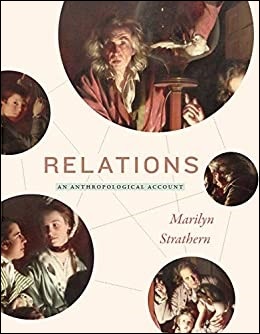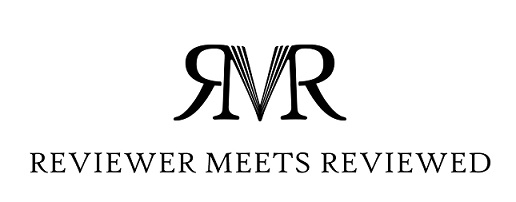Past events
A VIRTUAL SEMINAR SERIES OF THE ROYAL ANTHROPOLOGICAL INSTITUTE
Thursday 4 May 2023 at 4.00-6.00pm (BST)
You can register for the Zoom event here: https://us02web.zoom.us/webinar/register/WN_yTEEWkRmRvKFfla4ekaMGA#/registration

Relations: an anthropological account
The Royal Anthropological Institute is pleased to present ‘Reviewer meets Reviewed’, a discussion between author Prof Dame Marilyn Strathern (Cambridge University) and reviewer Prof Bob Simpson (Durham University).
The concept of relation holds a privileged place in how anthropologists think and write about the social and cultural lives they study. In Relations, eminent anthropologist Marilyn Strathern provides a critical account of this key concept and its usage and significance in the English-speaking world. Exploring relation's changing articulations and meanings over the past three centuries, Strathern shows how the historical idiosyncrasy of using an epistemological term for kinspersons (“relatives”) was bound up with evolving ideas about knowledge-making and kin-making. She draws on philosophical debates about relation—such as Leibniz's reaction to Locke—and what became its definitive place in anthropological exposition, elucidating the underlying assumptions and conventions of its use. She also calls for scholars in anthropology and beyond to take up the limitations of Western relational thinking, especially against the background of present ecological crises and interest in multispecies relations. In weaving together analyses of kin-making and knowledge-making, Strathern opens up new ways of thinking about the contours of epistemic and relational possibilities while questioning the limits and potential of ethnographic methods.
The book is published by Duke University Press.
More info here: https://read.dukeupress.edu/books/book/2714/RelationsAn-Anthropological-Account
-----------------------------------------------
The review
Journal of the Royal Anthropological Institute, 28 (3), September 2022, pp.1076-1077
Bob Simpson
For many years, I have taught an undergraduate introduction to the social anthropologist's hallowed topic of kinship. One of the conundrums I puzzle over each year is the problem of language and classification. How best can one talk about the things that are germane to the study of kinship – reproduction, affect, care, intimacy, domesticity, reciprocity, and so forth – given that the English language is shot through with its own vernacular and theoretical loadings. One solution to this problem was offered by Derrida and his suggestion that we write sous rature: ‘under erasure’. Basically, concepts linked to words are necessary for communication, but they are also suspect, and this ambivalence, according to Derrida, should be signalled by erasure (e.g. ‘father’ might best be put across as ‘father’). The erasure marks conceptual possibilities but also alerts us to their limits and the ever-present potential for refinement and conceptual advance. Put another way, social analysis, particularly where matters of kinship are concerned, needs to be approached with a careful and reflexive sensibility. In Relations: An anthropological account, Marilyn Strathern provides us with a tour de force of reflexive sensibility in which she places the very notion of relations sous rature. This is not done by means of any simple line signifying erasure, but through an extended meditation on the way the concept has been used historically and heuristically in the English-speaking world. More specifically, Strathern considers the notion of social relations, and its use as a foundational analytical and often taken-for-granted operator in anthropological thinking in general and thinking about kinship in particular.
In the Anglophone tradition of science and philosophy forged in the Enlightenment, the idea of the relation played a key part in the ways that the natural and the social worlds came to be understood (and in fact came to be thought of as separate in the first place). Indeed, between knowledge relations and social relations there has always been a significant traffic, drawing on metaphor, analogy, and other domain-merging activities. This traffic has a history that Strathern carefully delineates. In particular, she is taken with the fact that at one point relation (originally narration or the telling of a story) became relations (a term to designate people with whom one had a connection, otherwise known as kin). As a neologism for kin, relations captured new ways of thinking about where kinship ended and other kinds of association began, notably friendship (whereas in fact they were both kinds of relation all the way along!). Much of the book takes the form of a recursive folding in of the epistemological consequences of this observation for Anglophone anthropology, and a discussion of how it produced a distinctive understanding of the world as differentiated relata, which are then brought together through analysis. As foundational conceptions in the construction of anthropological knowledge about the connected nature of existence, unpacking this mode of relational thinking is thus of some consequence: ‘relations organize expositions’ (p. 74) and exposition is the essence of ethnography.
An intriguing line of thought in Strathern's account of relations concerns something that didn't happen; an epistemological blindspot, so to speak. Her claim is that out of Enlightenment philosophy (Scottish and English) there emerged a rather disconnected version of the person, sans relations. She makes a fascinating case for why kinship didn't figure for these earlier thinkers or in the traditions that they engendered. As their focus was the articulation of a generalized human nature and the interchangeability of persons and their sentiments, the highly intersubjective and relational character of everyday life was occluded. The occlusion was one that cast long shadows over Anglophone social science. In the chapter ‘Kinship unbound’, there is an attempt at remedy, and we are treated to some of the strategies whereby we might side-step the dynamic of occlusion implicit in conventional kinship thinking and open up to a much richer, and perhaps ecological, understanding of what it means, in analytical terms, to relate one thing to another – in other words, to refine and develop ethnographic expositions of others’ experience of lived connection.
Strathern is generous in her use and acknowledgement of others’ work, and, indeed, often carries it further on from where they last put it down. By passing the accounts of others through the optic of relations, things happen; new possibilities for how we might think and write about the world are made visible. Some, however, and particularly those of an empiricist bent, may find Relations a disconcerting read. Its recursive style – exposition of exposition, ethnography of ethnography, comparison of comparison, relations of relations and so forth – may give the impression, in epistemological terms, of sawing through the branch that much anthropological scholarship sits upon. In this regard Gregory Bateson's Naven (1936) comes to mind as a possible parallel. Although different in content, there is an attempt in Relations to bring into view the way we think about and therefore write about social processes rather than seeing these processes as unmediated by the ethnographer's cultural logics. Like Naven, Relations will provide food for thought for generations to come. It is a significant work and an important addition to Strathern's distinctive oeuvre.
----------------------------------------------------------------------
Your support makes all the difference to the RAI
The RAI needs your support. We are an independent charity dedicated to anthropology. Please can you help us with our essential work by making a donation today. With your support we can continue to deliver our inspiring online events programme and run our flagship events (London Anthropology Day, the RAI Film Festival and our international conferences). We can continue our essential support of anthropological research, to care for our archive, manuscript and photo collections and develop our education programmes to create globally informed citizens. Thank you for your interest in this event, we appreciate you supporting the RAI.
To make a donation
Donate with PayPal
Or send a Text Message to add a donation to your monthly mobile phone bill or pay as you credit :
• Text RAISE 3 to 70085 for a one-off donation of £3
• Text RAISE 5 to 70085 for a one-off donation of £5
• Text RAISE 10 to 70085 for a one-off donation of £10
• Text RAISE to 70460 to set up a regular gift of £3 each month, helping fund our vital work long term.
For more information and terms & conditions please go to: https://www.therai.org.uk/support-us/donate
Have you considered becoming an RAI Fellow? https://www.therai.org.uk/joining
Many people from all over the world are affiliated to the RAI. We welcome anyone with an interest in the subject, whether working in an academic institution or not. Our affiliates include academic specialists, students, those working in fields where anthropology has practical applications, and those whose interest is captured by the subject matter of anthropology.
Want to hear more about the RAI's upcoming events? You can sign up to our mailing list here:
https://us7.list-manage.com/subscribe?u=94e3bf4c82be9b8d19299eb8a&id=f6438860ac
